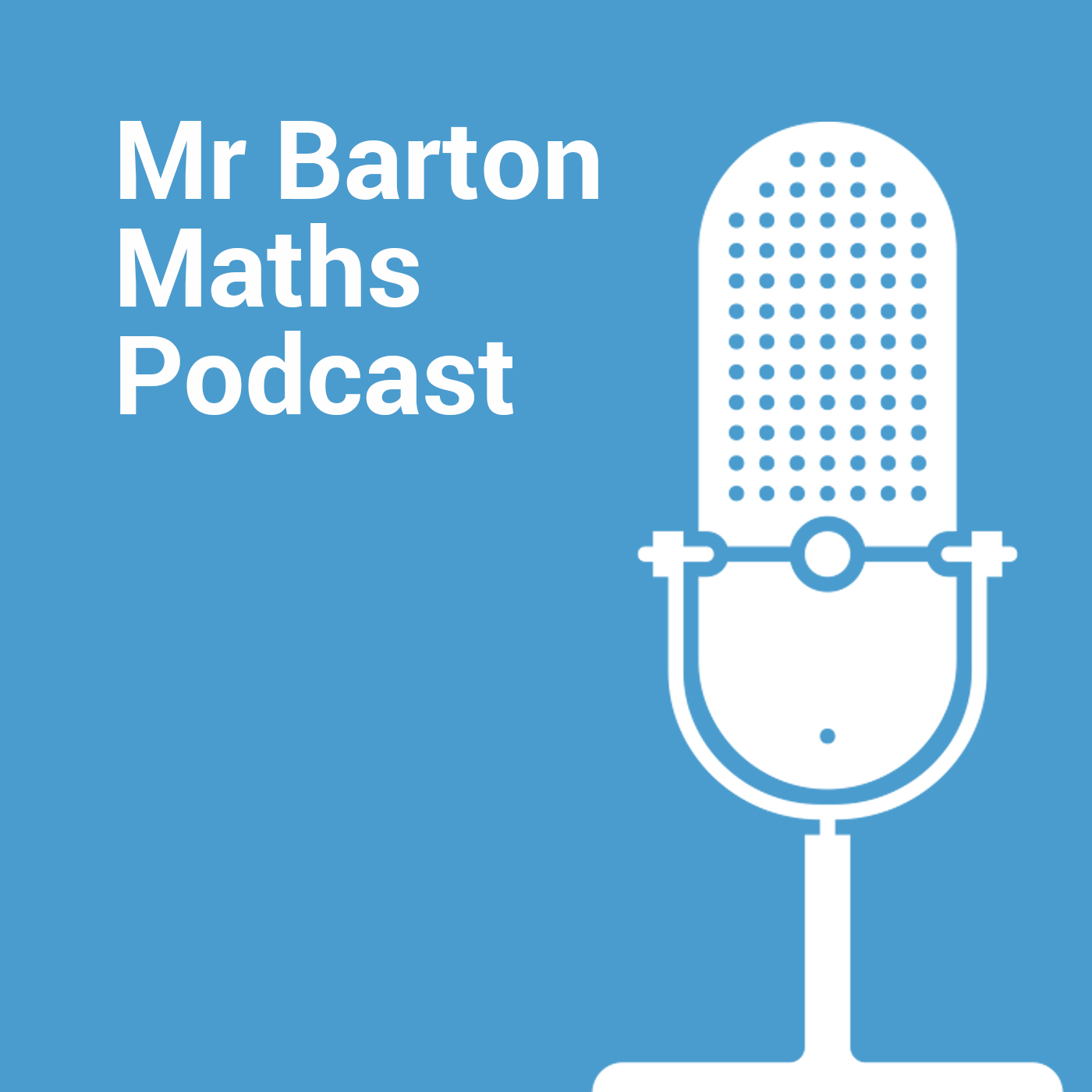
Craig Barton interviews guests from the wonderful world of education about their approaches to teaching, educational research and more. All show notes, resources and videos here: https://www.mrbartonmaths.com/blog/
Science teacher, Pritesh Raichura, shares his insights about how to ensure 100% of our students are listening, thinking and understanding at each stage of a lesson. From All-Hands-Up Cold Calling, to high-frequency checks for listening, this episode is jam-packed with incredible, practical insights. You can access the resources and videos from the episode here: https://www.mrbartonmaths.com/blog/170-how-to-secure-100-student-engagement-with-pritesh-raichura/
Useful time-stamps:
- Welcome to Pritesh (06:51)
- Pritesh's favourite failure (10:37)
- What does Pritiesh mean by attention? (19:25)
- What does 100% attention look like? (22:53)
- Is 100% attention really achievable? (28:15)
- What is the relationship between attention and behaviour? (33:44)
- All-Hands-Up Cold Call (46:06)
- How do you secure attention when students are practising independently? (1:16:37)
- Show Call (1:20:35)
- High-frequency checks for listening (1:25:20)
- Desks in rows (1:43:05)
- S-L-A-N-T (1:58:10)
- Silence as a default (2:08:36)
- The instruction sandwich (2:18:44)
- Making routines work in the classroom when they are not whole-school policies (2:26:51)
- The three phases of questioning (2:33:41)
- Backload the means of participation (2:45:51)
- Turn and Talk (2:52:24)
- Mini-whiteboards (3:10:59)
- Head down, fist on head for answering multiple choice questions (3:21:38)
- Pritesh's Big 3 (3:30:02)

Sponsor details
This episode of the Mr Barton Maths Podcast is kindly supported by AQA. You can find out more about their Questions Matter campaign here: aqa.org.uk/questions-matter
Episode details
I have been a huge fan of Pritesh’s writing for years. He shares honest, insightful reflections about teaching on his blog Bunsen Blue. But over the last few months, his writing has gone to a new level, with each post blowing my mind a little bit more. In particular, his insights into student engagement, the importance of checking for listening as a precursor to checking for understanding, and his approach to All Hands-Up Cold Calling have already had a profound influence on my practice.
Whatever your subject or level of experience, I know you will get loads out of this conversation
Useful time-stamps:
- Welcome to Pritesh (06:51)
- Pritesh’s favourite failure (10:37)
- What does Pritiesh mean by attention? (19:25)
- What does 100% attention look like? (22:53)
- Is 100% attention really achievable? (28:15)
- What is the relationship between attention and behaviour? (33:44)
- All-Hands-Up Cold Call (46:06)
- How do you secure attention when students are practising independently? (1:16:37)
- Show Call (1:20:35)
- High-frequency checks for listening (1:25:20)
- Desks in rows (1:43:05)
- S-L-A-N-T (1:58:10)
- Silence as a default (2:08:36)
- The instruction sandwich (2:18:44)
- Making routines work in the classroom when they are not whole-school policies (2:26:51)
- The three phases of questioning (2:33:41)
- Backload the means of participation (2:45:51)
- Turn and Talk (2:52:24)
- Mini-whiteboards (3:10:59)
- Head down, fist on head, for answering multiple choice questions (3:21:38)
- Pritesh’s Big 3 (3:30:02)
Videos from our conversation:
For hundreds of other video tips, check out Tips for Teachers
About the guests
On Twitter Pritesh is @Mr_Raichura
Pritesh’s blog, Bunsen Blue, is here: bunsenblue.wordpress.com
Pritesh’s Big 3
- Seven Myths about Eduction
- Teach like a Champion 3.0
- Come and visit Ark Sloane Academy! – send Pritiesh a message on Twitter
My usual plugs:
- You can help support the podcast (and get an interactive transcript of this episode) via my Patreon page at patreon.com/mrbartonmaths
- If you are interested in sponsoring an episode of the show, then please visit this page
- You can sign up for my free Tips for Teachers newsletter and my free Eedi newsletter
- My online courses are here: craigbarton.podia.com
- My books are “Tips for Teachers“, “Reflect, Expect, Check, Explain” and “How I wish I’d taught maths”
